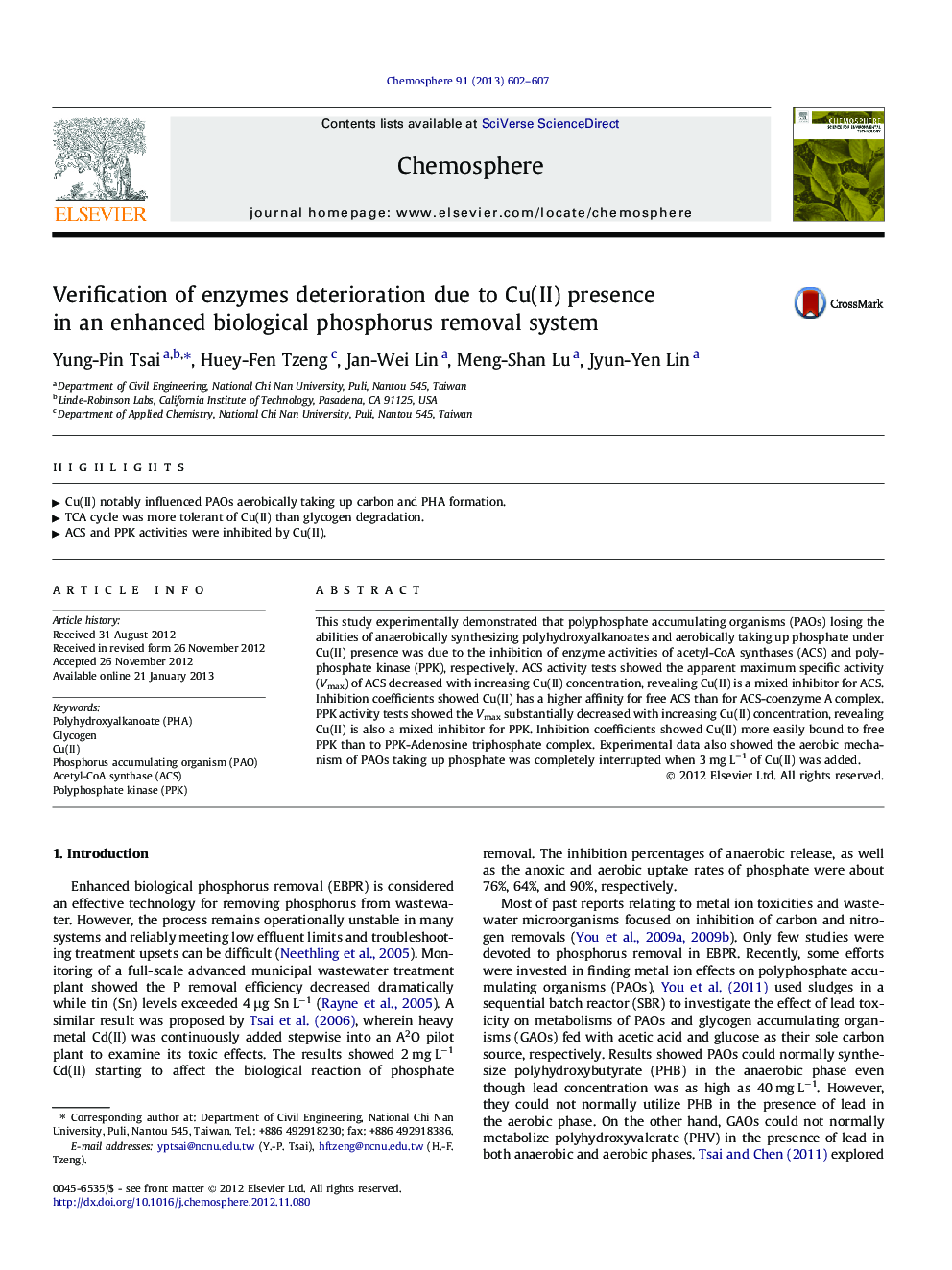| Article ID | Journal | Published Year | Pages | File Type |
|---|---|---|---|---|
| 4409374 | Chemosphere | 2013 | 6 Pages |
This study experimentally demonstrated that polyphosphate accumulating organisms (PAOs) losing the abilities of anaerobically synthesizing polyhydroxyalkanoates and aerobically taking up phosphate under Cu(II) presence was due to the inhibition of enzyme activities of acetyl-CoA synthases (ACS) and polyphosphate kinase (PPK), respectively. ACS activity tests showed the apparent maximum specific activity (Vmax) of ACS decreased with increasing Cu(II) concentration, revealing Cu(II) is a mixed inhibitor for ACS. Inhibition coefficients showed Cu(II) has a higher affinity for free ACS than for ACS-coenzyme A complex. PPK activity tests showed the Vmax substantially decreased with increasing Cu(II) concentration, revealing Cu(II) is also a mixed inhibitor for PPK. Inhibition coefficients showed Cu(II) more easily bound to free PPK than to PPK-Adenosine triphosphate complex. Experimental data also showed the aerobic mechanism of PAOs taking up phosphate was completely interrupted when 3 mg L−1 of Cu(II) was added.
► Cu(II) notably influenced PAOs aerobically taking up carbon and PHA formation. ► TCA cycle was more tolerant of Cu(II) than glycogen degradation. ► ACS and PPK activities were inhibited by Cu(II).
